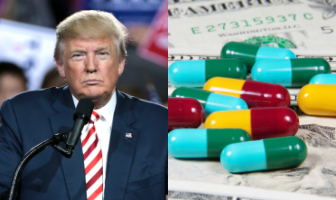Trump’s “Buy American” Executive Order Could Raise Drug Prices
August 6, 2020

This newly controversial executive order comes on the heels of last week’s four executive orders on drug pricing which created significant tensions between the pharmaceutical industry and the Trump White House.
Few agree with the “Buy American” approach: Pharmaceutical manufacturers, major business groups, economists, and conservative organizations have stated that they oppose this mandate, publicly imploring the White House to reconsider. These stakeholders have warned that the “Buy American” order could raise domestic drug prices as a result of the higher cost of materials and labor in the United States.
“Taxpayers and patients will pay more for drugs and medical supplies,” a group of more than 250 economists warned in a letter to the White House earlier this year.
The carrot to this executive order stick is the benefits offered to the pharma industry: the EO includes an HHS directive to streamline FDA new drug applications and will include provisions that relax EPA environmental restrictions that make it more difficult to produce drugs in the US. And, there will be an edict to utilize “continuous manufacturing” (making drugs via an assembly line), a technology that drug makers have been reluctant to invest in due to start-up costs.
Spokespersons for the White House insist that industry deregulation and incentives for continuous manufacturing will keep drug prices down, but this remains to be seen.
Read more.






